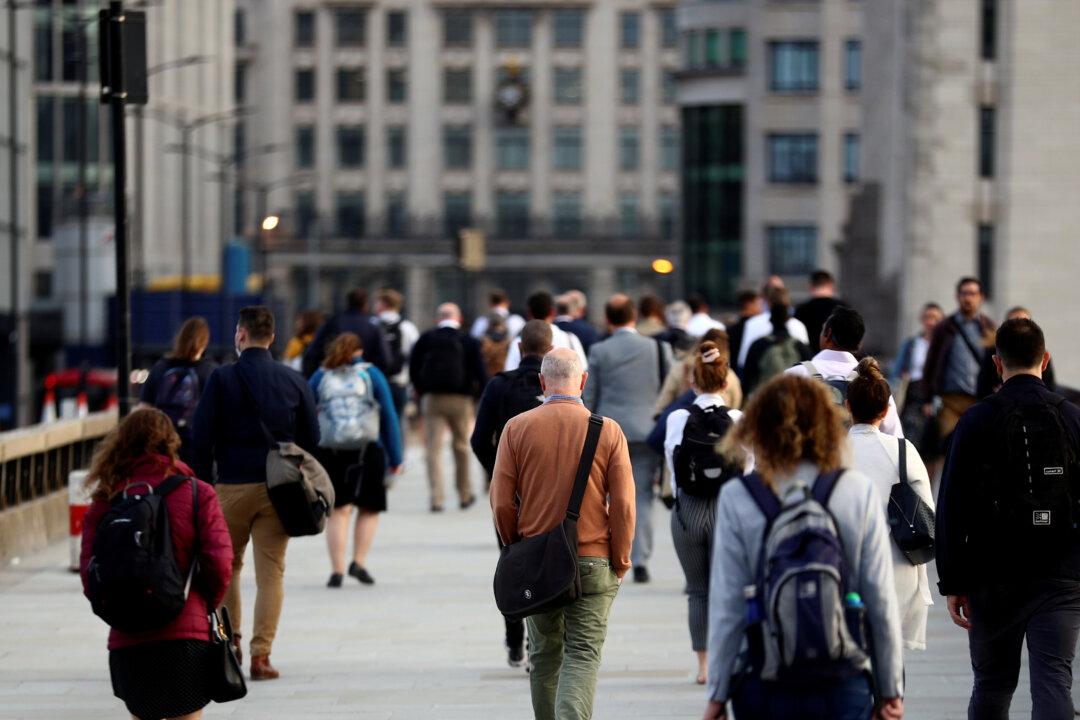LONDON—Britain’s coronavirus-hammered economy grew more quickly than previously thought in the final three months of last year but still shrank by the most in more than three centuries in 2020 as a whole, official data showed on Wednesday.
Gross domestic product (GDP) increased by 1.3 percent between October and December last year from the previous three-month period, the Office for National Statistics (ONS) said.





